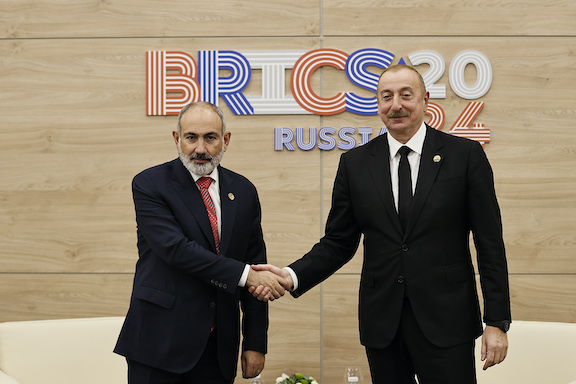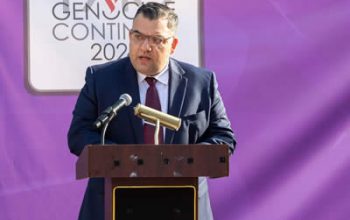On Wednesday, Armenian Prime Minister Nikol Pashinyan firmly rejected Azerbaijan’s ongoing calls for amendments to Armenia’s constitution, which Baku claims contain territorial assertions against Azerbaijan.
Azerbaijani President Ilham Aliyev has repeatedly insisted that Armenia revise its constitution as a precondition for a peace agreement between the two nations. Aliyev recently reiterated this stance during discussions with foreign leaders.
The Azerbaijani government has taken issue with the Armenian constitution’s preamble, which references a 1990 declaration of independence. This declaration, in turn, refers to a 1989 unification act passed by the legislative bodies of Soviet Armenia and the then-Nagorno-Karabakh Autonomous Oblast.
In response, Pashinyan emphasized the limited legal weight of the preamble, echoing a recent ruling by Armenia’s Constitutional Court. According to him, the operative articles of the constitution hold more significance. Pashinyan also pointed out that Azerbaijan’s own constitution contains territorial claims against Armenia.
“However, Armenia does not demand changes to the Azerbaijani constitution for two reasons,” Pashinyan stated in an address to the Armenian parliament. “First, such a demand would stall the peace process between Armenia and Azerbaijan. Second, the draft peace agreement includes a clause stipulating that neither party can cite their domestic legislation as a justification for failing to implement the treaty.”
Using this same logic, Pashinyan argued that there is no need for Armenia to amend its constitution to satisfy Baku’s demands.
Interestingly, in January, Pashinyan himself had advocated for a new Armenian constitution to better reflect the region’s changing geopolitical dynamics. He dismissed accusations that this initiative was being driven by pressure from Azerbaijan. However, he did acknowledge that achieving peace with Azerbaijan might be complicated by the existing reference to the 1990 independence declaration.
In May, Pashinyan established a special government commission tasked with drafting a new constitution by the end of 2026, with a potential referendum on the changes planned for 2027. Despite this, he noted on Wednesday that he might only consider constitutional amendments if Armenia’s Constitutional Court were to reject a potential peace agreement.
Last month, reports emerged suggesting that Pashinyan had proposed intensive two-day talks between the Armenian and Azerbaijani foreign ministers to resolve their remaining disputes and finalize a peace treaty ahead of the COP29 climate summit in Baku. However, no such negotiations took place. On Monday, a senior Armenian diplomat acknowledged that the two countries still have unresolved disagreements after exchanging new peace proposals last week.
Azerbaijani presidential aide Hikmet Hajiyev confirmed in an interview with Russia’s TASS news agency on Wednesday that Baku and Yerevan are expected to resume discussions next month to address these outstanding issues.




